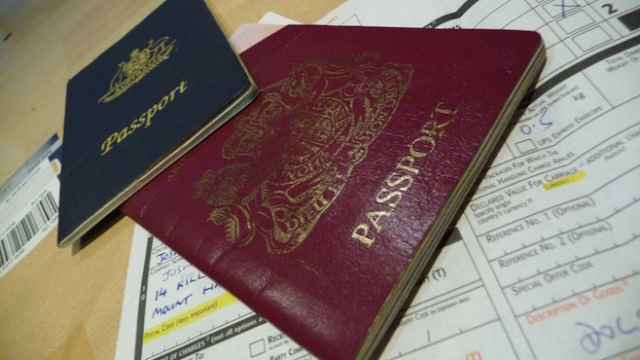Russia criticized the European Union on Monday for allowing the publication of a list of European officials barred from entering the country in the diplomatic fallout over the Ukraine crisis.
Foreign Minister Sergei Lavrov said Moscow, which drew up the list in response to a similar ban on Russian officials by the EU, had handed over the list to the EU "confidentially."
The EU says the travel bans are unjustified and a list seen by Reuters over the weekend showed 89 European politicians and military leaders were included on it.
Czech Foreign Minister Lubomir Zaoralek summoned Russia's ambassador on Monday to express disagreement with the "unilateral, groundless and non-transparent step," his ministry said in a statement.
Zaoralek also said a documentary aired recently by state-controlled television station Rossia had portrayed the 1968 Warsaw Pact invasion of Czechoslovakia "in significant contradiction with facts."
Lavrov dismissed as "absurd" Western criticism that Russia's travel bans were unjustified.
"The reverse sanctions that were introduced applied to officials who have been most active in supporting the state coup that led to the start of persecution and discrimination of Russians in Ukraine," Lavrov told a news conference, confirming Russia had drawn up the list.
"With the EU introducing its restrictions on some 150 Russians, I think, we did the same for a considerably smaller number of EU member states' citizens," he said.
Kremlin spokesman Dmitry Peskov told reporters the bloc's reaction had been "difficult to understand."
Russia denies Western accusations of direct military involvement in east Ukraine and accuses the West of orchestrating protests in Kiev that led to the overthrow of a Ukrainian president favored by Moscow in February last year.
Russia annexed the Crimea peninsula from Ukraine a month later, saying it must protect the rights of Russian-speakers there. It says the separatist uprising that followed in east Ukraine was provoked by fears over a threat to Russian-speakers from the new "illegitimate" authorities in Kiev.
More than 6,100 people have died in fighting between Kiev's forces and Russia-backed rebels in east Ukraine.
A Message from The Moscow Times:
Dear readers,
We are facing unprecedented challenges. Russia's Prosecutor General's Office has designated The Moscow Times as an "undesirable" organization, criminalizing our work and putting our staff at risk of prosecution. This follows our earlier unjust labeling as a "foreign agent."
These actions are direct attempts to silence independent journalism in Russia. The authorities claim our work "discredits the decisions of the Russian leadership." We see things differently: we strive to provide accurate, unbiased reporting on Russia.
We, the journalists of The Moscow Times, refuse to be silenced. But to continue our work, we need your help.
Your support, no matter how small, makes a world of difference. If you can, please support us monthly starting from just $2. It's quick to set up, and every contribution makes a significant impact.
By supporting The Moscow Times, you're defending open, independent journalism in the face of repression. Thank you for standing with us.
Remind me later.





